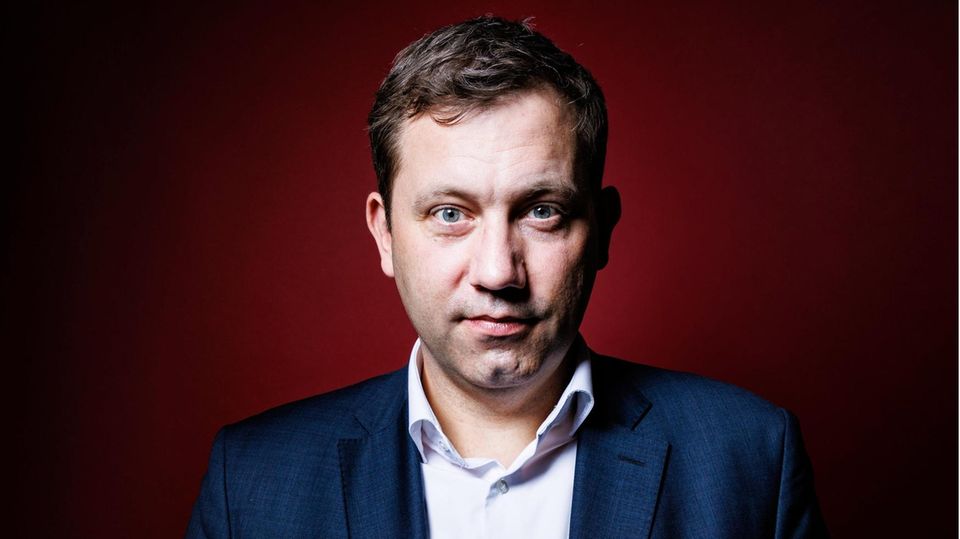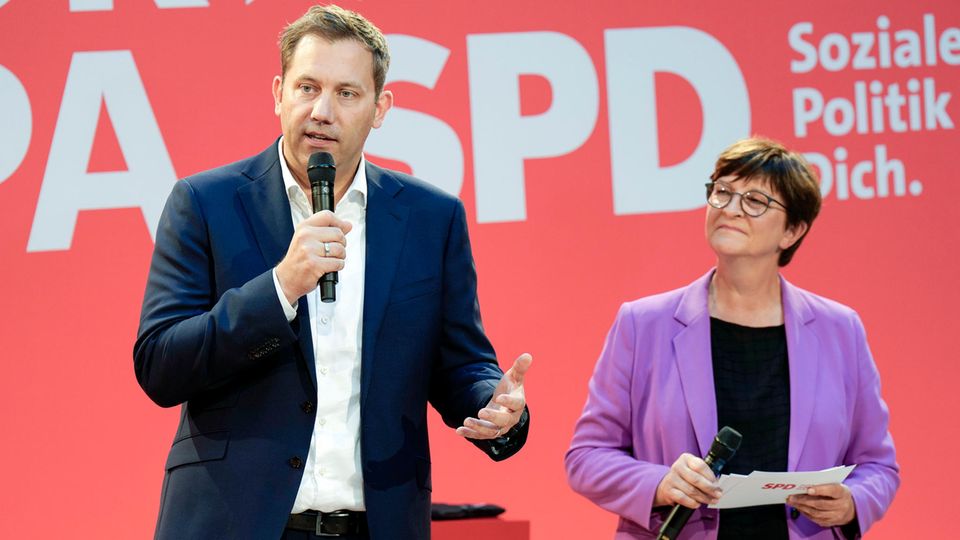Opinion
SPD tax proposals
Special tax for the super rich: A little warmth for the red heart
May it be a little bit more? SPD leader Lars Klingbeil (right) and his general secretary Kevin Kühnert
© Kay Nietfeld/dpa
Before its party conference, the SPD is launching a real tax offensive. Super-rich and mega-heirs should pay more. That’s true, but it won’t become reality any time soon. Not in this coalition.
In the last few weeks one had the impression that there was only exactly one topic in German domestic politics: refugees and how to get rid of them as quickly as possible. This impression is of course fatal – especially for the Chancellor’s party. Their leadership has come up with something, it seems like a real counter-offensive. Or like a diversionary tactic.
At the beginning of the week he laid SPD-Boss in star before. At the end of the week, his general secretary will follow suit in Spiegel. Lars Klingbeil has called for a special tax for the super-rich. It is “only fair if millionaires and mega-heirs also contribute more.” Klingbeil called it a “future tax,” payable by the top ten percent of income earners.
“Temporary crisis levy”
Also Klingbeil’s general Kevin Kühnert now speaks of a “temporary crisis levy”. In addition, they want to ask super heirs to pay more, especially those who inherit entire companies should pay a minimum tax on them. And by the way, Kühnert also introduces the hated debt brake, which in reality has long since become an “investment brake” and prevents “investment impulses”.
Hear the signals!
And yet it is of course nonsense when Kühnert says that this “future concept” is about the “topics of tomorrow”. These have long been the topics of today. Today it’s about renovating any domestic infrastructure, about transforming the economy to be climate-neutral and faster digitalization and better education. And that’s why today it’s about the question of how we finance thatso very general and best fair. Unfortunately, these questions are difficult to answer today, in the here and now – at least if you want to answer them like the SPD does. If “fair” means above all that under no circumstances should those who already pay a lot, who the SPD has in its sights as its core voters, pay.
That’s absolutely true, but that’s exactly why it’s not feasible. Not in this government constellation, not as long asChristian Lindner FDP chairman and finance minister. The Liberal has promised his voters exactly two things: With him there will be no higher taxes and the debt brake will finally be adhered to again.
Lindner has nothing to give away, neither does Klingbeil
Even if the coalition partners hate it: Christian Lindner would rather put a heat pump in his Porsche than break one of these two central promises. He doesn’t have much left to give away; his party is languishing at 5 percent in the nationwide polls.
Unfortunately, things aren’t much better for Klingbeil and his followers: the Chancellor’s party has plummeted to 15 percent. And herein lies the true motive for the current tax activism. At the beginning of December, the SPD holds its party conference in Berlin. And some comrades are tormented by the question of whether they are actually still a member of a left-wing party – a lot of money for the military, little for children and then this eternal asylum debate. The management can write down a few snappy demands. That’s definitely enough for a key proposal that warms the red heart a little. Not so much in reality.
“You do what for the revolution”
We wish Messrs. Klingbeil and Kühnert good luck – and still have to think of Tucholsky’s “older but slightly drunk gentleman” who once asked a socialist why he actually voted for the SPD. “Ick I thought the man would fall off my chair.” Then the comrade answered: “It is such a soothingJefie. One does whatfor de Revolutzjonbut one weeessJanzjenau: with these leasehold se comes not.”
Of course that was mean. But it’s not entirely wrong to this day.




